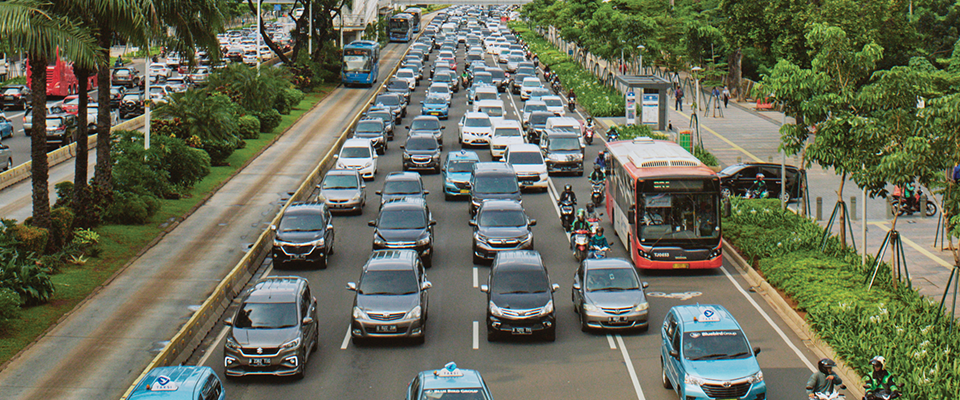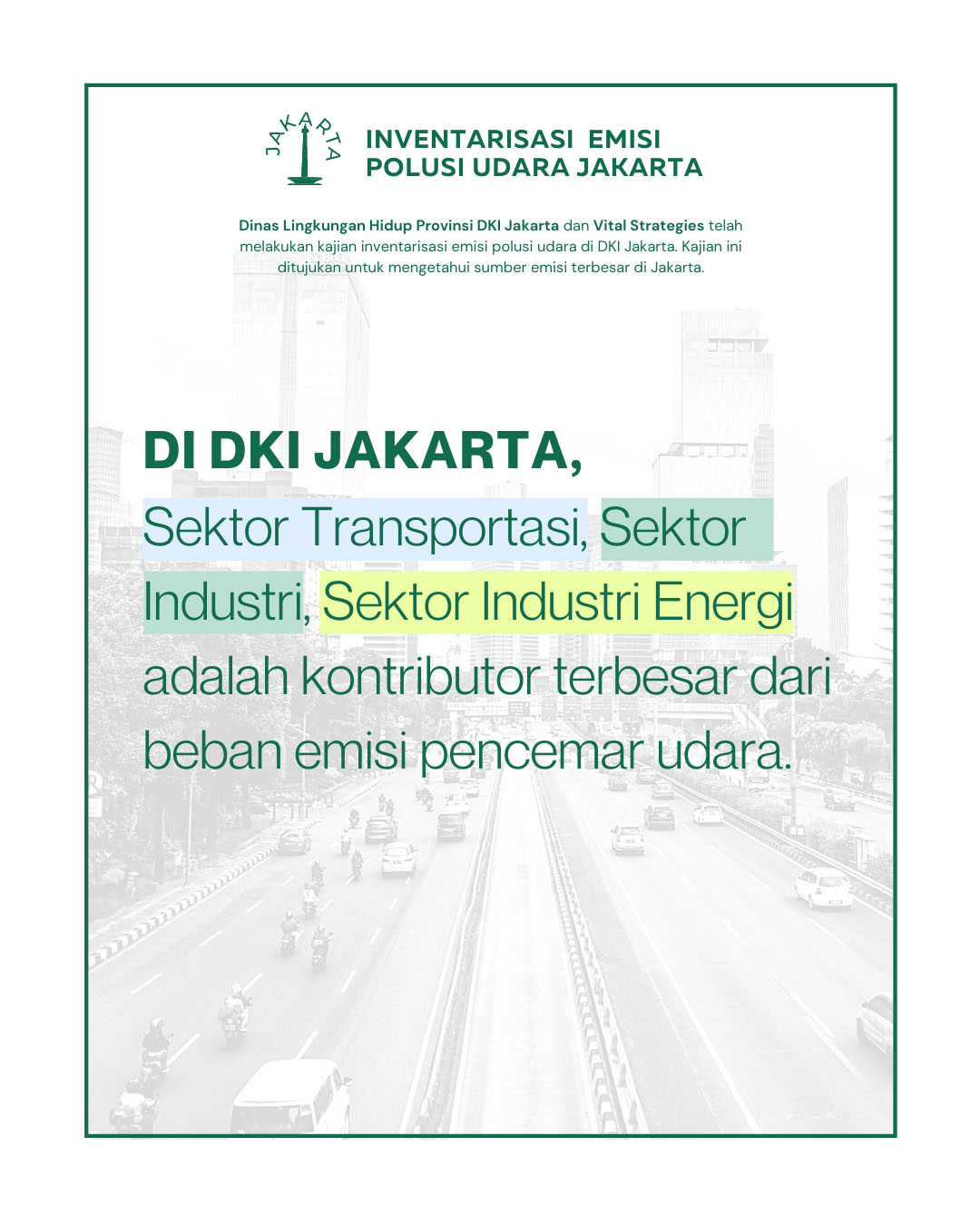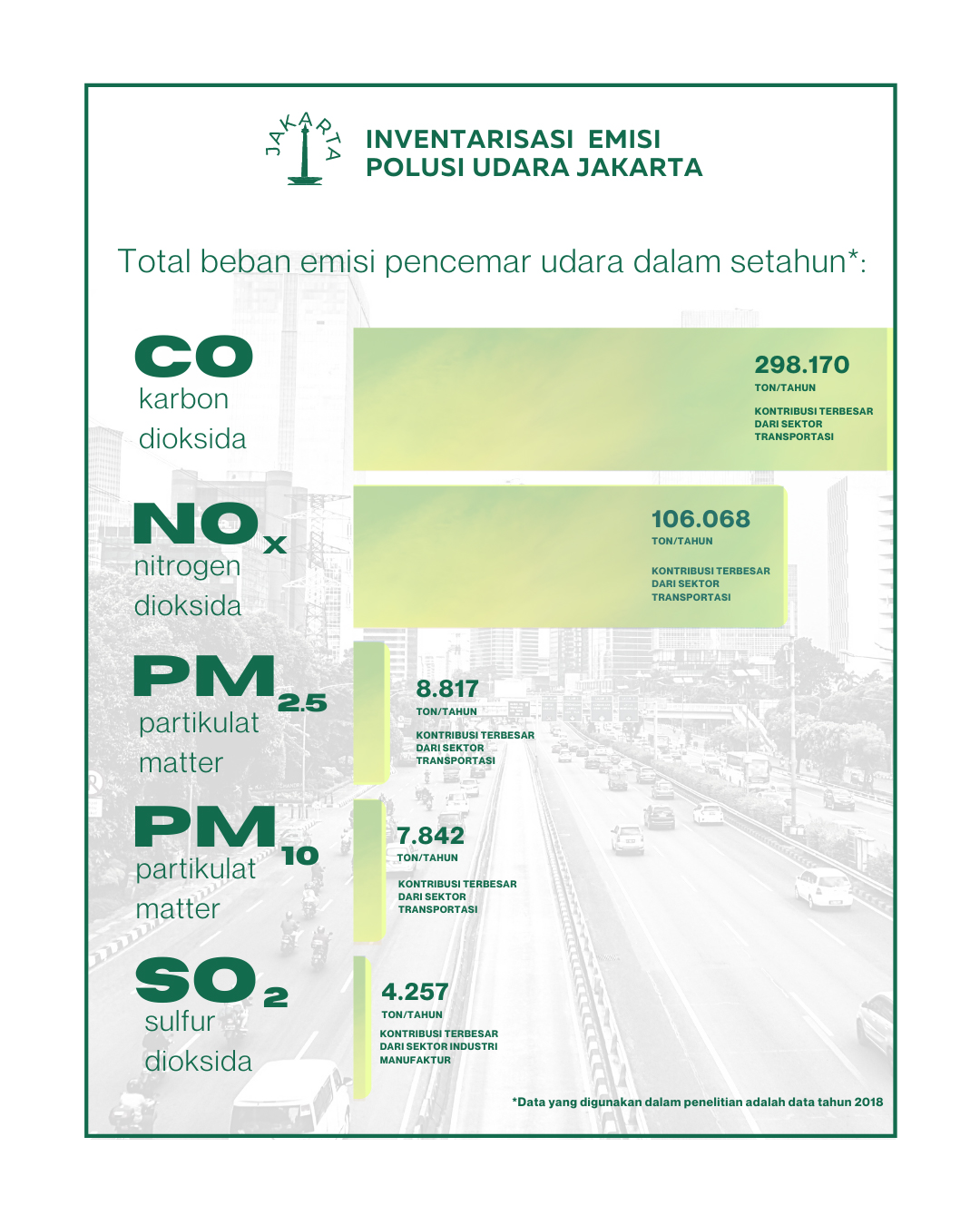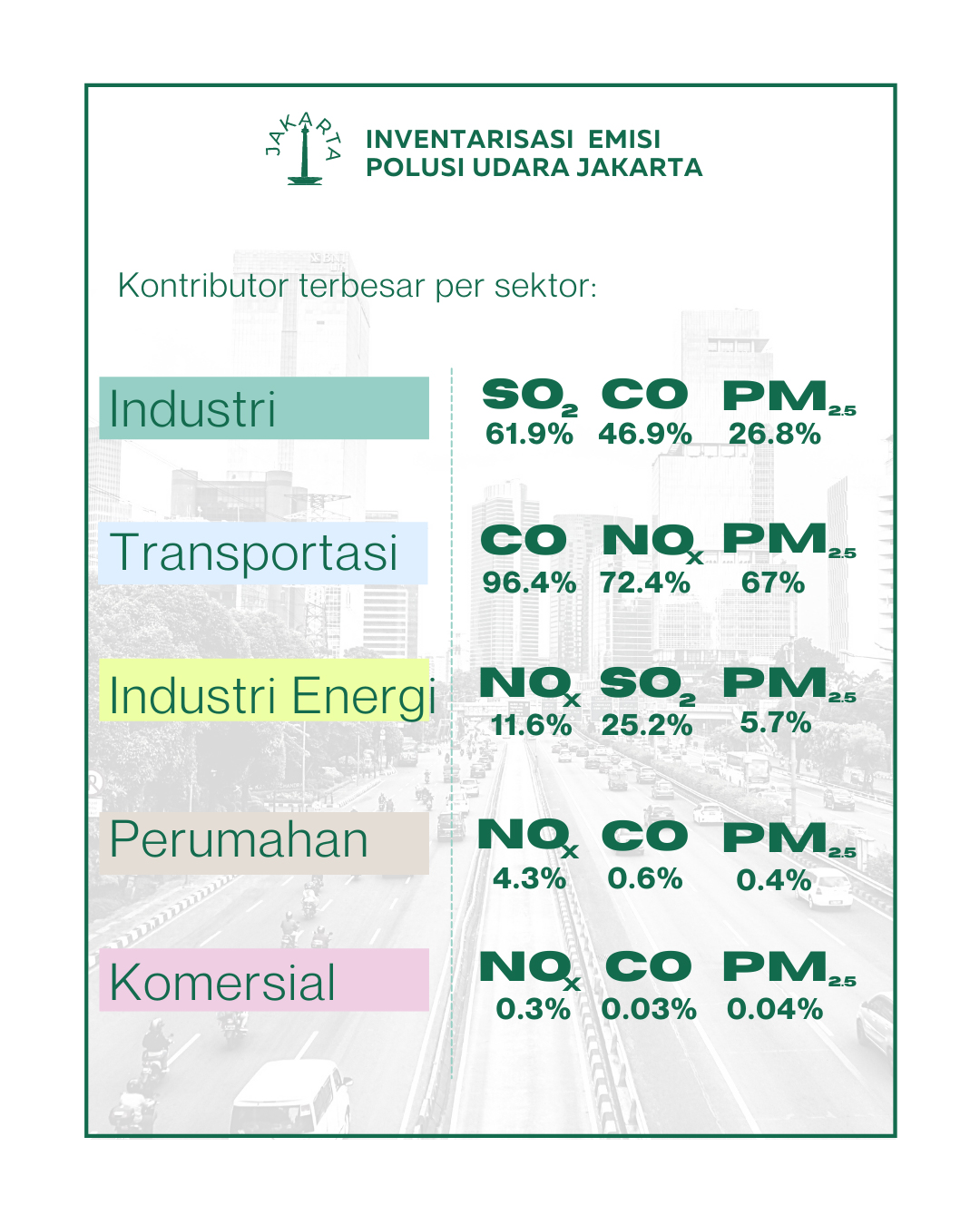
This study conducted in 2020 aims to measure the largest emission contributors in Jakarta as a basis for making policies related to air pollution in Jakarta. This is related to the increasing economic activity in DKI Jakarta so that it has the potential to increase air pollution. This study using 2018 data as a whole covers the transportation, manufacturing, energy, residential and construction sectors.
The transportation and manufacturing sectors are the biggest contributors
The main finding of the study is that the transportation sector is the main source of air pollution, especially for pollutants NOx (72.40%), CO (96.36%), PM10 (57.99%), and PM2.5 (67.03). %). Meanwhile, the manufacturing sector is the largest source of pollution for SO2 (61.96%) and the second-largest contributor to NOx (11.49%), PM10 (33.9%), and PMs2.5 (26.81%) .
These findings are consistent with several studies conducted previously by Prof. Dr Ir. Puji Lestari from the Bandung Institute of Technology (ITB) in 2019 who revealed that the transportation sector is the largest contributor to CO pollutants (93%), NOx (57%), and PM2.5 (46%). The study also revealed that the processing industry is the main contributor to SO2 pollutants (43%) and the second-largest contributor to transportation (43%).
Coal as dirty fuel
This study also found that there are still some processing industries that use coal as a fuel for their production. Of the total energy consumption in Jakarta for all sectors, the portion of coal is only 0.42% of the total energy, namely 440,904 terajoules which is entirely consumed by the processing industry. Of the total energy consumed by the manufacturing sector, the use of coal is only 4% of the total consumption.
However, although coal consumption is only slightly compared to the total energy consumption in the processing industry, this fuel is the largest producer of SO2 from the total pollution from the processing industry, which is 64%, followed by CO 46.9% and PM2.5 9.68%.
Future policy
Currently, the DKI Jakarta Provincial Government has implemented several policies to reduce air pollution emissions from the transportation sector. Based on Governor's Instruction No. 66/2019 concerning Air Pollution Control, there are various policies related to the transportation sector, such as increasing emission tests, tightening the use of cars over the age of 10, and also using electric buses. This effort must be continued because transportation is the biggest source of pollution for almost all pollutants.
In the Governor's Instruction, there are also efforts to tighten the quality standards of the manufacturing sector to reduce the contribution of emissions from that sector. These two efforts must be carried out continuously in order to keep pace with economic growth in the capital city over time.
For a more complete view of the results of the study, please view the infographic:



Related tags: